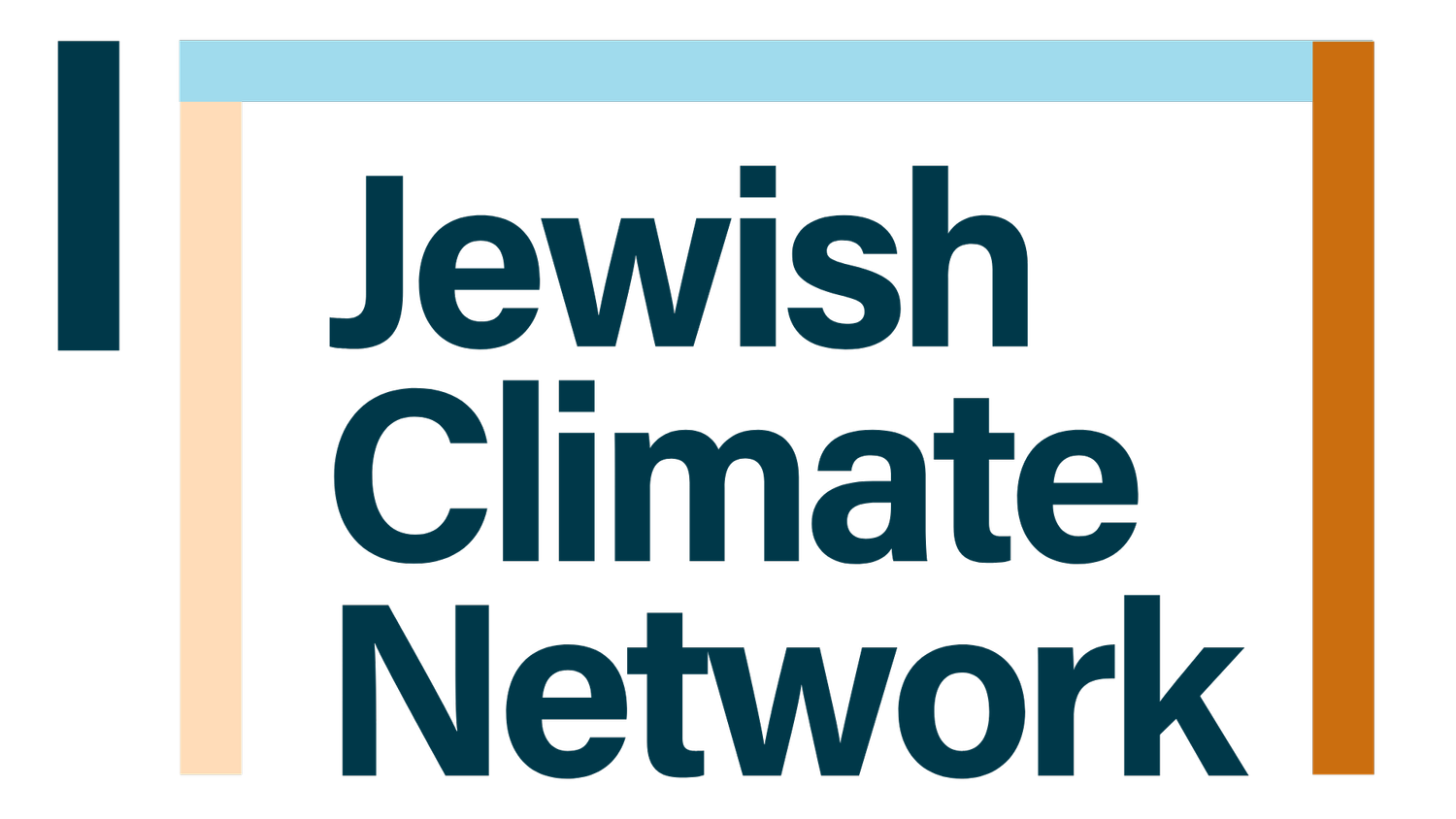Pesach Pledge
With Pesach 2023 on the horizon, many of us started to prepare for this all-encompassing festival. The food, the guests, the fold-out chairs, the deep clean.
And for many, there is the deep desire to have interesting and powerful contemporary discussions around the seder table, inspired by the long-standing themes of Pesach - freedom, slavery, peoplehood, survival, the Past, the Future.
The magic of Jewish survival has been our capacity to take the old, and have it inform the new challenges of the day.
In that vein, a big question I and many others asked around the seder table this year was:
What might the themes of Pesach have to say about my role in tackling climate change?
In past years, the Jewish Climate Network has invited the community to place an ice-block on the seder table. As it melts, it evokes the melting ice caps, driven by human-induced global heating. It evokes discussion among guests about this unfolding crisis.
We still encourages this symbol as Pesach is a night of strong symbols.
But a discussion does not always lead to action. Understanding does not always lead to responsibility. And the Haggadah directly implores us: See yourself as though you, personally, came out of Egypt. If that is not a more direct invitation to material experience and action, I don’t know what is.
So in 2023, JCN took it one step further, with an emphasis on action.
We developed the “Pesach Pledge”. This platform provided community members with an opportunity to commit to a single action - in the following 12 months - that would reduce our collective reliance on fossil fuels (coal, oil, gas); the root cause of accelerating extreme weather events the world over. Together with the pledge, community members received a beautiful, easy-to-use resource that supported them to implement their commitment, as well as a downloadable document to foster discussion and action at the seder table.
With the release of the latest IPCC Report on 21 March (2023), after years of expert research and analysis, the urgency of action has never been clearer. We have fewer than seven years to more than halve our emissions, and we are not going fast enough.
Every action we each take this coming year directly contributes to the future experienced by us, our children and grandchildren.
What does this pledge have to do with Pesach?
The story of Pesach is linked by two consecutive Pharaohs: one who was compassionate to the Israelites, followed by one who enslaved them. The history of fossil fuels is much the same. What once served us, now enslaves us. Fossil fuels enabled the progress of the Industrial Revolution and have provided us with huge amounts of energy that has driven economic growth and raised living standards for centuries. For a long time we have been the Josephs in a favourable empire.
But dependency on fossil fuels has now caused unprecedented rising emissions that accelerate fires, floods, storms and drought; precipitated the 6th mass extinction; driven the health of our biodiversity to the precipice; and undermined the safety, health and wellbeing of millions of people, including people like those in Lismore, NSW, that recently commemorated the first anniversary of devastating floods.
Freedom from fossil fuels does not simply mean giving things up.
It equates to a wide range of wonderful improvements to our lives.
For example, it means moving away from our petrol-based cars to electric vehicles, e-bikes and e-scooters, leading to healthier air, quieter streets and, if you charge up on solar, free travel. For this action, we take inspiration from Nachshon ben Aminadav, a prince of the tribe of Judah. While the Israelites were trapped between the Red Sea and the Egyptian army, it was Nachson who walked first into the surf. As the waters reached the top of his head, his bravery triggered the miracle of the splitting of the sea. For us, Nachshon represents forward movement for a better future, and inspires us to choose electric transport for a healthy future.
We’ve also created pledges in areas of Finances, Energy and Home. Each of these pledges are linked to inspiring characters from the Pesach story: Miriam, Aaron and Batya.






